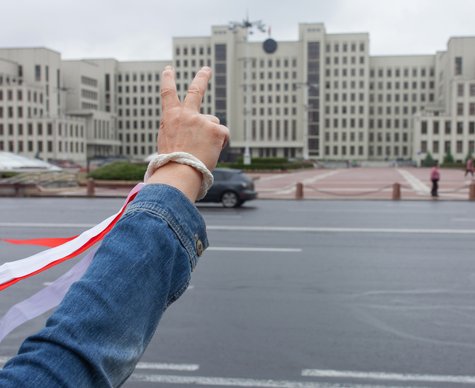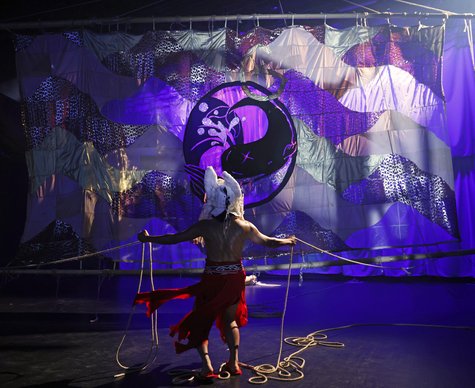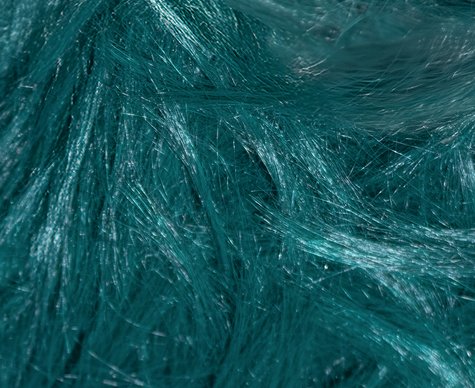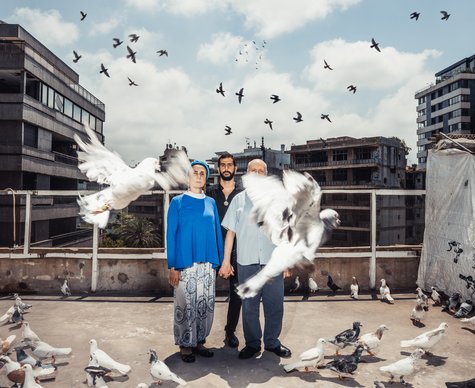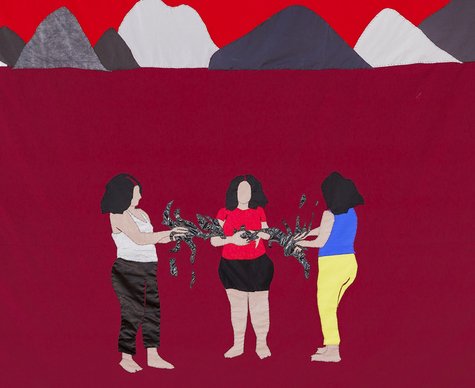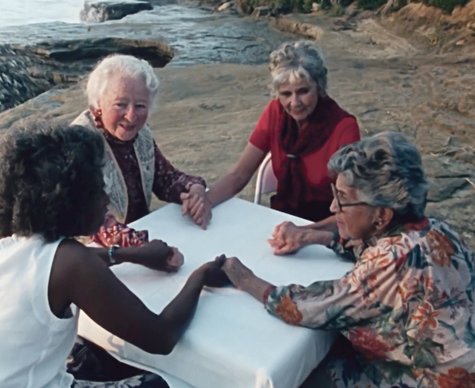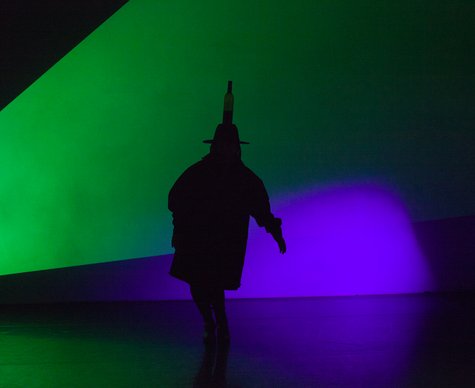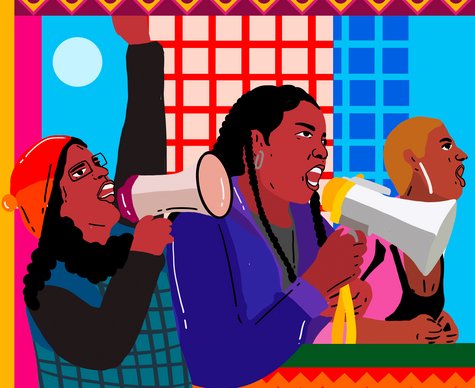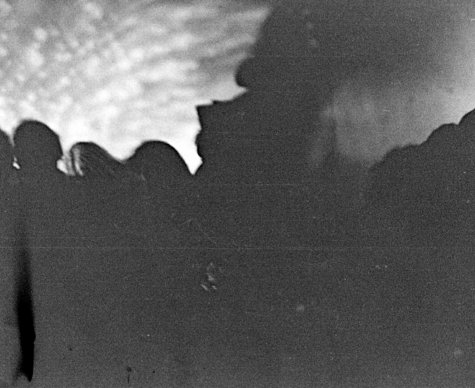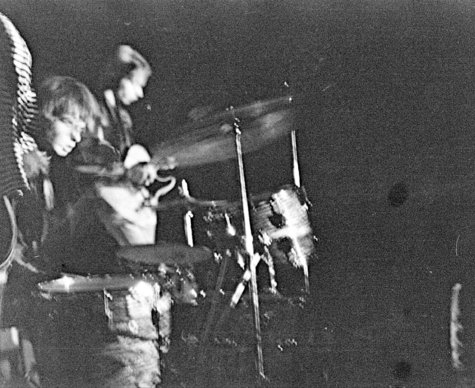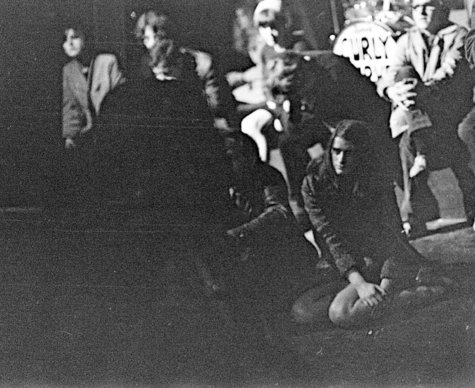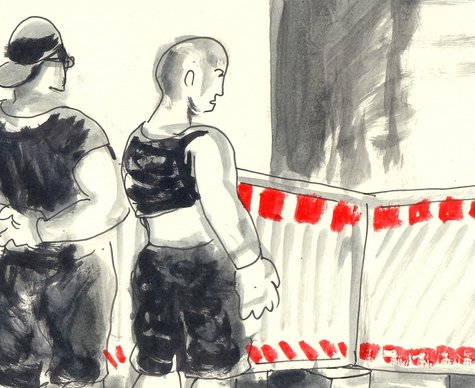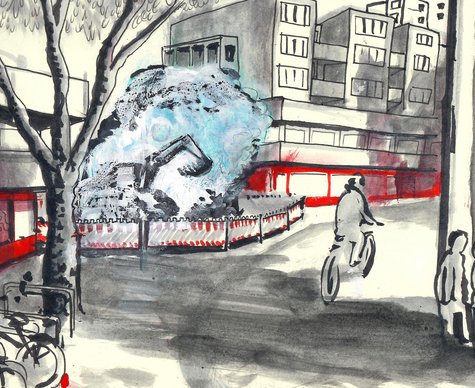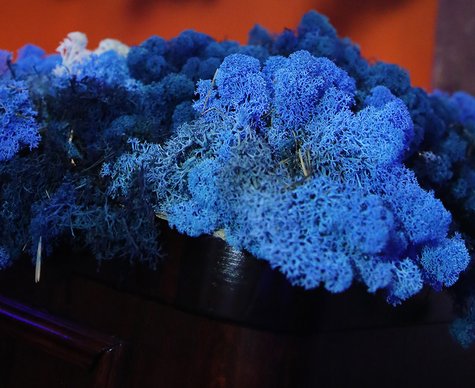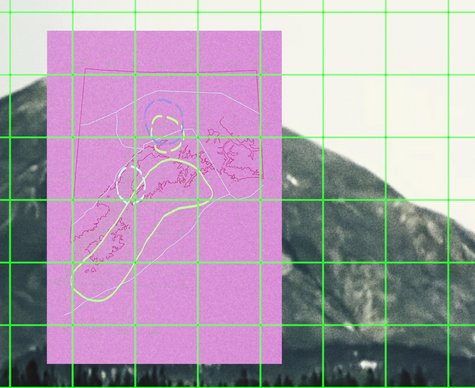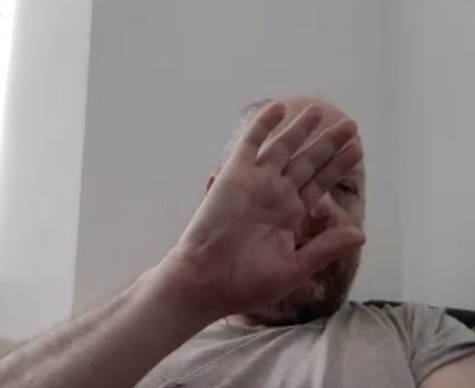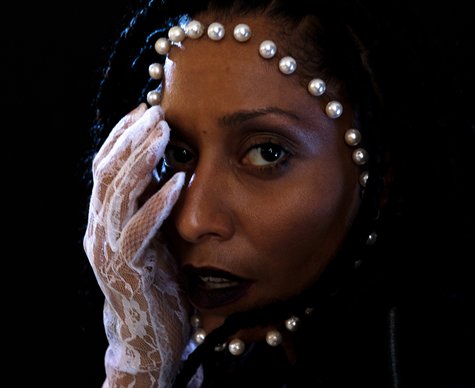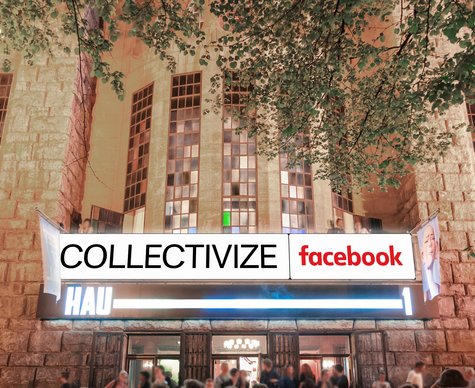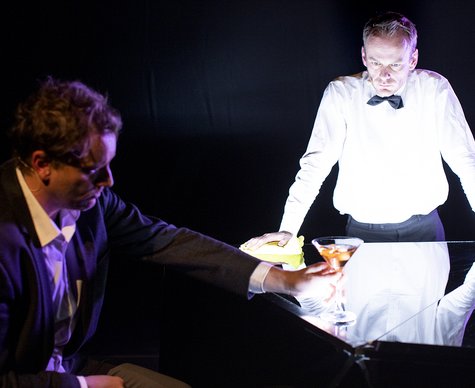CTM 2014 / Dis Continuity
Sound Exchange I
DIISSC Orchestra, First Latvians On Mars, Ornament and Verbrechen (Robert und Ronald Lippok), Black Manual
- Music
Curated by Carsten Seiffarth and Carsten Stabenow of Dock e.V., Sound Exchange began its search for the roots and current state of experimental music culture in Central and Eastern Europe in 2011. The region has a lively, international network of musicians, cultures and festivals. Since the period of transition started in 1981, however, local traditions and their protagonists – especially the underground movements – have partially been forgotten or escaped wider notice as they reinvented themselves.
In a special two-day programme, several Sound Exchange projects pay homage to a series of Eastern European pioneers via performances by younger-generation artists. The first Sound Exchange evening begins with Lithuania’s DIISSC Orchestra, a group of five composers who perform with Soviet-era VENTA synths as well as an eclectic array of appropriated instruments such as disc players, stopwatches, and graphic scores. The First Latvians on Mars will present “Dein Bart in Zeit und Raum”, a project dedicated to Hardijs Lediņš, an interdisciplinary composer, performer, and theatre dilettante considered as a cult figure in Latvian non-conformist art history. The evening extends its explorations into East Germany with Ronald and Robert Lippok, known for their involvement in Roccoco Rot and Tarwater, who revive Ornament & Verbrechen, an avant-garde band they founded in the GDR underground in 1983.
In finale, Jan St Werner presents his new Black Manual project, formed in 2012 after Jan St. Werner heard percussionists Valdir Jovenal, Juninho Quebradeira, and Leo Leandro play at a Candomblé ceremony in Kreuzberg. Together with Andi Toma, with whom Werner had risen to fame through their pioneering 1990s project, Mouse on Mars, Werner mixed this unholy conglomerate of Brazilian Candomblé “voodoo” rhythms into a live performance project and a recently-released album, Mordendo (Brigade Commerz, 2013). The result is a musical marathon somewhere between performance and ritual, a roiling sound and rhythm collage with uncanny spatial dimensions.
CTM’s focus on Central and Eastern Europe includes various panels and film screenings within the festival’s daytime Discourse programme, as well as a variety of talks and film screenings investigating experimentation that surround the Generation Z: ReNoise exhibition on music and technology pioneers in post-Revolution Russia. The exhibition Experimental Music in Central and Eastern Europe is also on view in the HAU2 throughout the festival.
Sound Exchange I is presented as part of CTM 2014’s Opening Night events, which are supported by the Government Commissioner for Culture and the Media, and Deutscher Musikrat. The programme is also supported by the Lithuanian Composers’ Union and the Culture Capital Foundation of Latvia. The entire Sound Exchange programme at CTM 2014 is presented in collaboration with DOCK e.V.
Gefördert aus Mitteln des Hauptstadtkulturfonds, der Initiative Musik, des Beauftragten des Bundes für Kultur und Medien, des Deutschen Musikrates und des Kulturprogramms der Europäischen Union. In Zusammenarbeit mit HAU Hebbel am Ufer, transmediale, Kulturprojekte Berlin, ECAS – European Cities of Advanced Sound, KIASMA – Museum für zeitgenössische Kunst in Helsinki, INA – GRM, EMS Stockholm, Institut für Sonologie am königlichen Konservatorium Den Haag und Dock Berlin.
Dates
Location
HAU2
Hallesches Ufer 34, 10963 BerlinThere are two marked parking spots in front of the building. Barrier-free restroom facilities are available. Four relaxed seats are available in the first row of HAU2. Tickets for wheelchair users and accompanying persons can also be booked via the ticketing system. If you need help, please contact our Ticketing & Service team at +49 (0)30 259004-27 or send us an email to
tickets@hebbel-am-ufer.de.
Latest information for arrival:
There is currently a construction site on Hallesches Ufer between Wilhelmstraße and Möckernbrücke underground station. There is a divided replacement route for pedestrians (right) and cyclists (left), which are separated by a yellow ground line. The carriageway is narrowed to one lane.
Travelling to HAU2 via U Hallesches Tor:
If you are coming from Hallesches Tor underground station, you will have to use an alternative footpath from Wilhelmstraße / Hallesches Ufer junction, which is separated from the carriageway by a construction fence – the actual footpath is currently closed. Please note: the alternative route is also used by cyclists. Pedestrians should keep to the right. We therefore currently recommend that visually impaired or blind visitors come to the HAU with an accompanying person.
Arrival HAU2 via U Möckernbrücke:
When you leave Möckernbrücke underground station, please stay on the footpath on the canal side until you reach Hallesches Ufer / Großbeerenstraße junction – the opposite side is currently closed due to construction work.























